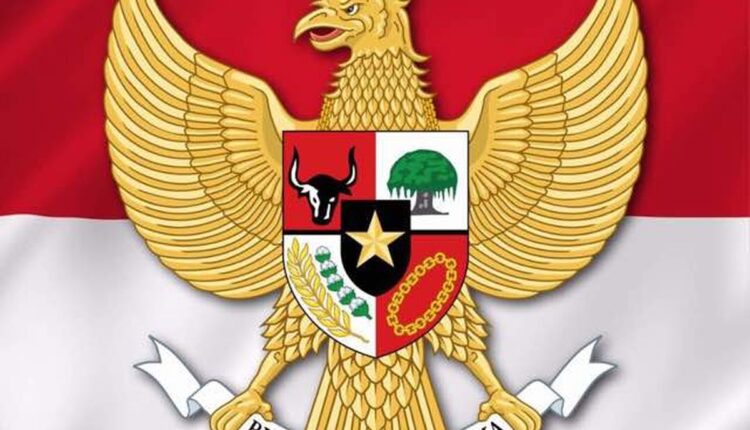RKUHP Realizes Pancasila-Oriented Criminal Law
By: Alula Khairunisa)*
Pancasila as the basis of the state must be the orientation for legal products that are being formulated, not least the Draft Criminal Code (RKUHP), which is a draft to update the Criminal Code to suit the development of social life.
Pancasila as the basis of the Indonesian state, is very important and very basic. Pancasila is a very fundamental foundation for the administration of the Indonesian state. The juridical position that has been held by Pancasila since August 18, 1945 together with the promulgation of the 1945 Constitution in the Republic of Indonesia News Number 7 by PPKI.
Pancasila is an ideology or state basis that is final, so its existence must be the basic norm in the preparation of laws or regulations.
Deputy Head of BPIP ( Pancasila Ideology Development Agency ), Dr. Drs. Karjono, SH, M.Hum, said that the preparation of the RKUHP was an effort to gather inputs from various parties to equalize the public’s perception of the articles in the RKUHP.
Karjono said that the drafting of the RKUHP is a form of accountability for the process of establishing laws and regulations which is carried out transparently and involves the community. Pancasila as a philosophical foundation needs to be considered in the formation of legislation in order to achieve legal ideals.
Karjono hopes that mutual cooperation and various views will create good, legitimate and accountable laws and regulations.
Of course, it is not easy for a country that is very multicultural and multiethnic to make a codification of criminal law that can accommodate various interests. Therefore, good cooperation and communication between the government, DPR RI and all elements of society must be firmly established to realize the new National Criminal Code.
In this public dialogue organized by the Director General of Legislation, Ministry of Law and Human Rights, 14 crucial issues were discussed. Among other things, articles regarding living law , capital punishment, assault on the dignity of the President and Vice President, declaring that they have committed a crime because they have supernatural powers, doctors and dentists who carry out work without permission.
In addition, contempt of court, poultry and livestock destroying gardens, fraudulent advocates, religious blasphemy, animal abuse, contraceptives and abortions, abduction and adultery.
Karjono added, this RKUHP is one of the government’s efforts to develop a national criminal law re-codification system that aims to replace the old Criminal Code as a legal product of the Dutch East Indies colonial era.
In order to realize Indonesia as a state of law, Karjono emphasized that the formation of laws and regulations must be implemented in an integrated, planned and sustainable manner in the national legal system to ensure the protection of the rights and obligations of every citizen.
On a different occasion, the Special Staff of the Chairman of the BPIP Steering Committee, Antonius Benny Susetyo, pushed for the RKUHP to be ratified immediately. The reason is that the existing Criminal Code is no longer relevant to the values of Pancasila. In the current Criminal Code, there is also an imbalance of domination, where this legal product is used by the colonials to oppress the small people. This of course must be changed, because it is not in accordance with the values of Pancasila.
Pancasila as the basis of the state which is accommodated in the RKUHP in article 190 paragraph 1 which can be the force of law in taking action against anyone who intends to replace and interfere with the lawsuit of Pancasila.
One form of reflection of Pancasila values in the RKUHP is the emergence of the concept of material legality in Article 2 of the RKUHP. Article 2 paragraph (1) of the RKUHP which states ” The provisions as referred to in Article 1 paragraph (1) do not reduce the enactment of the law that lives in society which determines that a person deserves to be punished even though the act is not regulated by law”
The article is based on an understanding that the law is not limited to a written rule or law, but there are also unwritten laws. So that the existence of Article 2 of the RKUHP can provide space for law enforcement officers, especially for law enforcement officers, especially judges to be able to explore the law that lives in society in an effort to create justice.
If examined more deeply, Article 2 of the RKUHP departs from the condition of Indonesia which has cultural diversity in each region. Where there are several regions in Indonesia that still believe in the law that has existed since their ancestors even though it has not been codified in writing.
In Bali, for example, there is a custom or law in which marriage matters are carried out by carrying away the women. Such a thing by the local community is not a criminal act. However, if you look at national law or in the Criminal Code, the act is a criminal act.
The RKUHP has been discussed for a long time through successive teams and has received legal political directions from seven presidents. So that this draft law can be said to be ready to be implemented in Indonesia, on the other hand the RKUHP is also Pancasila oriented.
)* The author is a contributor to the Nusantara Reading Room
